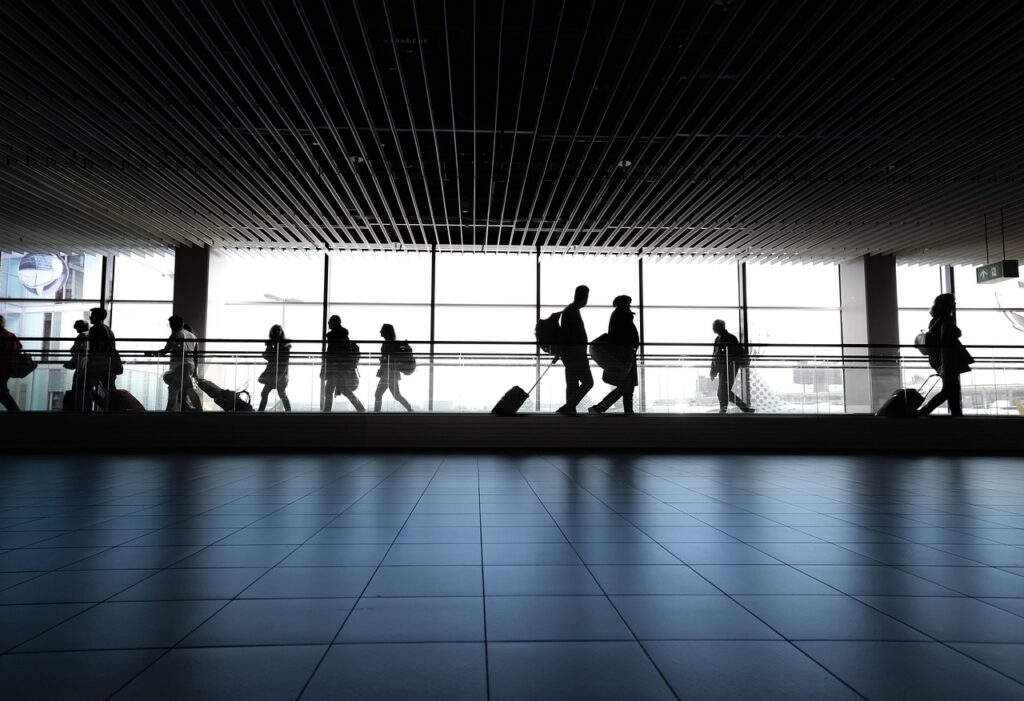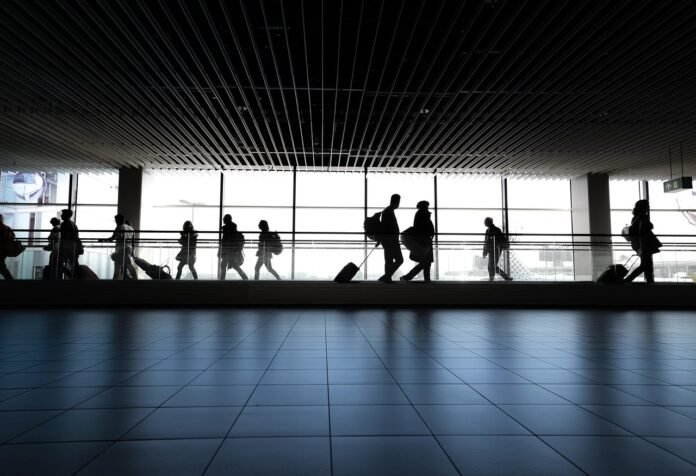
European Union lawmakers have delivered a decisive blow to budget airlines’ profit strategies by voting to ban additional charges for hand luggage. European Union lawmakers voted on Tuesday to abolish airlines from charging passengers for small carry-on luggage in a move strongly opposed by the aviation sector. This landmark decision promises to reshape the European aviation landscape and puts billions in airline revenue at stake.
The New Rules Transform Air Travel
The comprehensive legislation guarantees that passengers flying within the EU can bring both a personal item and hand luggage aboard aircraft without paying extra fees. Airlines must now allow travelers to carry a personal bag with maximum dimensions of 40x30x15 centimeters alongside a larger hand luggage item measuring up to 100 centimeters in total dimensions and weighing no more than 7 kilograms.
Matteo Ricci, vice-president of the EU Committee on Transport and Tourism who sponsored the bill, declared the vote “an important step toward fairer and more transparent travel.” He emphasized that clearly defined rules for free hand luggage represent “a fundamental right to avoid unjustified extra costs” and ensure “a fairer and more efficient system.”
This decision builds upon a European Court of Justice ruling from over a decade ago that established hand luggage carriage cannot be subject to surcharges when items meet reasonable weight and dimension requirements while complying with safety standards. The consumer groups argue that the fees for hand luggage contravene a ruling from more than a decade ago by the European Court of Justice.
Budget Airlines Face Revenue Crisis
The new regulations particularly target low-cost carriers like Ryanair, Wizz Air, easyJet, Vueling, and Volotea, which have built substantial portions of their business models around ancillary fees. In 2024, Ryanair earned over €4.7 billion (S$6.7 billion) from these additional charges alone. These airlines have systematically charged passengers for luggage they classify as “oversized” but which consumer groups argue falls within dimensions the EU considers “reasonable.”
Ryanair, Wizz Air, EasyJet, Vueling, and Volotea are at the center of a brewing storm. The European Union is turning up the heat. A bold crackdown is coming—and it’s targeting one of the most hated airline practices in recent history: hidden hand luggage fees.
Consumer organizations have actively campaigned against these practices, requesting national consumer watchdogs and the European Commission to investigate what they characterize as unfair hand luggage charges. These groups successfully argued that budget airlines have exploited passengers by imposing fees on luggage that should qualify as free carry-on items under existing EU guidelines.
Industry Pushback and Price Concerns
The airline industry has mounted fierce opposition to these new regulations. Airlines for Europe (A4E), the industry association representing major carriers, warns that passengers will ultimately pay higher overall airfares, particularly affecting travelers who prefer to travel light.
An A4E spokesperson expressed concern that the legislation “removes choice from passengers and their ability to decide what services they want to pay for and, most importantly, what service they don’t.” Industry representatives argue that airlines will compensate for lost baggage revenue by incorporating these costs into base ticket prices, potentially making air travel more expensive for everyone.
A ban on charging passengers extra for hand luggage could also have an operational impact on Europe’s low-cost carriers. Airlines like Ryanair pride themselves on their short turnarounds (as little as 25 minutes, as covered below), with their hand luggage policies playing a key role.
Beyond Luggage: Comprehensive Passenger Rights Reform
The hand luggage ruling represents just one component of the European Commission’s broader 2023 proposal to strengthen passenger rights across multiple areas. Lawmakers have expanded the legislation to include several passenger-friendly provisions:
Family Travel Protection: Airlines must seat children under 12 years old next to their accompanying passengers without charging additional fees.
Accessibility Improvements: The new rules require airlines to allow accompanying persons to travel with passengers who have reduced mobility at no extra charge. Airlines must also provide compensation for loss or damage to mobility equipment or injury to assistance animals.
Transparent Pricing: Airlines and intermediaries must disclose total flight costs, including all fees, earlier in the booking process. This requirement aims to eliminate surprise charges that appear only at checkout.
Streamlined Compensation: The legislation establishes a common EU-wide form for compensation and reimbursement requests. Airlines must send passengers pre-filled forms or activate automatic communication channels within 48 hours following flight disruptions.
Faster Reimbursements: Intermediaries must process passenger reimbursements within 14 days for cancellations, delays, or denied boarding. If intermediaries fail to meet this deadline, airlines must process reimbursements within seven days.
Implementation Timeline and Next Steps
The proposals must now advance to a full parliamentary vote, where lawmakers may make additional modifications. Following parliamentary approval, the legislation requires negotiation and approval by EU member states before taking effect. This process typically takes several months to years, meaning passengers won’t see immediate changes to current airline policies.
The timeline for implementation remains uncertain, as the proposals face potential resistance from member states with significant airline industries. Countries like Ireland, home to Ryanair’s headquarters, may push for modifications that protect their national carriers’ business models.
Global Implications and Industry Evolution
This EU legislation could influence airline practices worldwide, as major carriers often standardize policies across their networks rather than maintaining region-specific rules. The decision also reflects growing global pressure on airlines to improve transparency and eliminate hidden fees that frustrate passengers.
The aviation industry has increasingly relied on ancillary revenue streams as ticket prices have remained competitive. Airlines have introduced fees for seat selection, priority boarding, meals, and various luggage categories. This EU ruling represents the most significant regulatory challenge to the unbundling strategy that has defined low-cost aviation for the past two decades.
Consumer advocacy groups across Europe have celebrated the vote as a victory for passenger rights, while industry analysts predict airlines will adapt by restructuring their pricing models and potentially reducing the frequency of promotional sales that rely on add-on revenue to achieve profitability.
The legislation demonstrates the EU’s commitment to protecting consumer interests in the aviation sector while challenging airlines to develop more transparent and passenger-friendly business practices. As the proposals move through the approval process, both passengers and airlines will closely monitor developments that could fundamentally alter European air travel economics.














